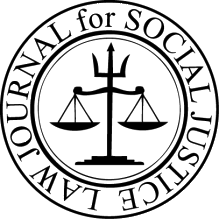By Keely Driscoll. The legal relationship between Tribes and the federal government rests on a long history of constitutional, treaty, and case law. A foundational principal of Federal Indian Law is the federal trust responsibility, under which the United States is expected to protect Tribal interests. As it stands, however, that trust has been repeatedly violated through the federal government’s use of eugenics and forced sterilization of women, particularly incarcerated women, immigrants, and women of color. Moving forward, greater oversight and reporting efforts are needed to ensure women are not forced to undergo irreversible procedures.
Book banning—it’s bad!
By Sophie Staires. Book banning is on the rise in the United States and, despite federal pushback, First Amendment arguments don’t seem to be helping. In this blog post, law student and Cherokee citizen Sophie Staires offers her firsthand account of Native American erasure in the American public school system—and a warning of what can result from hiding information and forcing people to forget their culture, their history, and their identity.
Unveiling the ongoing tragedy of Missing and Murdered Indigenous Women
By Suha Farid Fasih. A red hand over one’s mouth is emblematic of the movement demanding justice for Missing and Murdered Indigenous Women (MMIW) in the U.S. and Canada. Murder is the third leading cause of death among Native women, and certain Native American reservations have seen their murder rates against women soar to 10 times the national average. Meanwhile, jurisdictional issues and cultural conflicts prevent tribal communities from prosecuting perpetrators themselves, if those perpetrators are even identified. This ongoing crisis requires greater attention from local, national, and international communities to protect generations of women and girls from violence.
Our people are not for sale: How Medicaid program fraud targeted tribal members
By Shandiin Herrera. Health and safety are essential to a thriving community. As such, Native American leaders are committed to ensuring that quality services are provided to all tribal members. But a major fraud scheme uncovered by Arizona agencies and tribal governments in 2023 robbed the state of millions of dollars in state health and safety funding, taking advantage of a loophole in the Arizona Health Care Cost Containment System, or AHCCCS. The perpetrators defrauded taxpayers, but even more importantly they put the health and safety of vulnerable tribal members at risk and contributed to the delegitimization of essential state programs on which many people rely.
Does NAGPRA finally work for tribes?
By Chelsi Tsosie. The 1990 Native American Graves Protection and Reparation Act (NAGPRA) was enacted to mandate that museums and federal institutions with Native American human remains and related artifacts in their collections catalog those items and return them to the tribes and Indigenous communities from whom they were taken. But institutions often skirt the Act by claiming items cannot be properly identified. DOI Sec. Deb Haaland recently updated NAGPRA to require that such institutions consult with Indigenous peoples about how to repatriate Native ancestors and their belongings to their communities.
